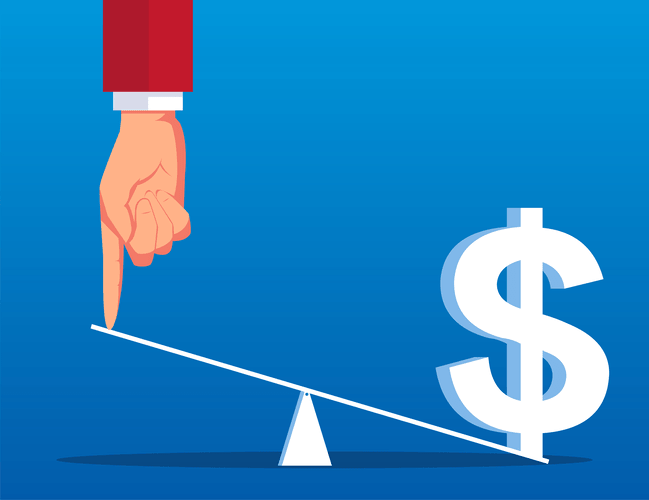
With the provider and customer agreeing to delivery of a services or goods, at a specified time, for a specified price. These contracts will always cross over into another accounting period, often spanning a year or longer. Contract terms, fees, and requirements must be outlined and adhered to. Continuously review and adjust the company’s unearned revenue management practices as needed to reflect changes in the business environment, accounting standards, or company operations.
What is Unearned Revenue? Is It an Asset or Liability?
Once earned, the revenue is no longer deferred; it is realized and counted as revenue. The adjusting entry for unearned revenue will depend upon the original journal entry, whether it was recorded using the liability method or income method. And so, unearned revenue should not be included as income yet; rather, it is recorded as a liability. This is unearned rent a liability liability represents an obligation of the company to render services or deliver goods in the future. It will be recognized as income only when the goods or services have been delivered or rendered. In this case, the company can make the journal entry with the debit of the unearned rent revenue account and the credit of the rent revenue account.
Payroll tax filing: big guide for small business
Emerson charges rent of $4,000 to a tenant for his use of an apartment for one month. The tenant is going away on vacation, and so pays the rent a week early. This is unearned rent for Emerson, who records the payment as a $4,000 debit to his cash account and a $4,000 credit to his unearned rent (liability) account.
What Is Deferred Revenue?

The landlord has yet to uphold the agreement’s end – provide rental service. So, recording unearned income as a liability also fulfills the legal obligation of the business. Unearned revenue is common for sellers with services and subscription models. It comes with the added advantage of receiving cash before delivering goods or services. Since the seller receives cash or any other form of payment, the revenue generated cannot be ignored.
Per accrual accounting reporting standards, revenue must be recognized in the period in which it has been “earned”, rather than when the cash payment was received. You’ll see an example of the two journal entries your business will need to create below when recording unearned revenue. Taking the previous example from above, Beeker’s Mystery Boxes will record its transactions with James in their accounting journals. Deferrals like deferred revenue are commonly used in accounting to accurately record income and expenses in the period they actually occurred. An example of deferred revenue is a retainer fee charged by law firms. When a legal practice charges a new client a $10,000 retainer fee, it isn’t immediately recorded as revenue in its books.
These are are all various ways of referring to unearned revenue in accounting. Since unearned revenue is cash received, it shows as a positive number in the operating activities part of the cash flow statement. It doesn’t matter that you have not earned the revenue, only that the cash has entered your company. Sometimes businesses take an advance payment on a good or service meaning they’ve been paid upfront and now they need to fulfill their end of the deal. In some cases, the business needs to reflect this in their accounting.
Unearned revenue on financial statements

When a customer prepays for a service, your business will need to adjust its unearned revenue balance sheet and journal entries. Your business will need to credit one account and debit another account with the correct amounts using the double-entry accounting method. The rationale behind this is that despite the company receiving payment from a customer, it still owes the delivery of a product or service.
- Unearned revenue is originally entered in the books as a debit to the cash account and a credit to the unearned revenue account.
- With each month, a business can record the performance bonuses as a liability on their balance sheet to accurately record what they’ll need to pay out at the end of the period.
- According to cash basis accounting, you “earn” sales revenue the moment you get a cash payment, end of story.
- More specifically, the seller (i.e. the company) is the party with the unmet obligation instead of the buyer (i.e. the customer that already issued the cash payment).
- In summary, unearned revenue is a vital concept within accrual accounting, helping provide a more accurate representation of a company’s financial position.
- Therefore, if a business records unearned revenue as a current liability in its balance sheet, it is in compliance with the GAAP rules and accrual accounting practices.
The Impact on Financial Statements
Unearned revenue is an essential concept in accounting, as it impacts the financial statements of businesses that deal with prepayments, subscriptions, or other advances from customers. Unearned revenue is considered a liability on a company’s balance sheet because it represents an obligation to deliver products or services to customers in the future. Until the company fulfills its obligations, it owes the customers the goods or services for which they have already paid.
Remember revenue is only recognized if a service or product is delivered, a refund nulls recognition. A reversal, will adjust the liability and move the money through to income, do NOT do that. In the case of subscription services, revenue installments are made at different times during the contract. For annual contracts, a prepayment is made at the beginning of the period. A business then would perform the service monthly and recognize a certain amount of revenue each month. It is an indicator that a business has the money to manage costs, fund investments, and reap sizable profits.
![]()
Leave a Reply